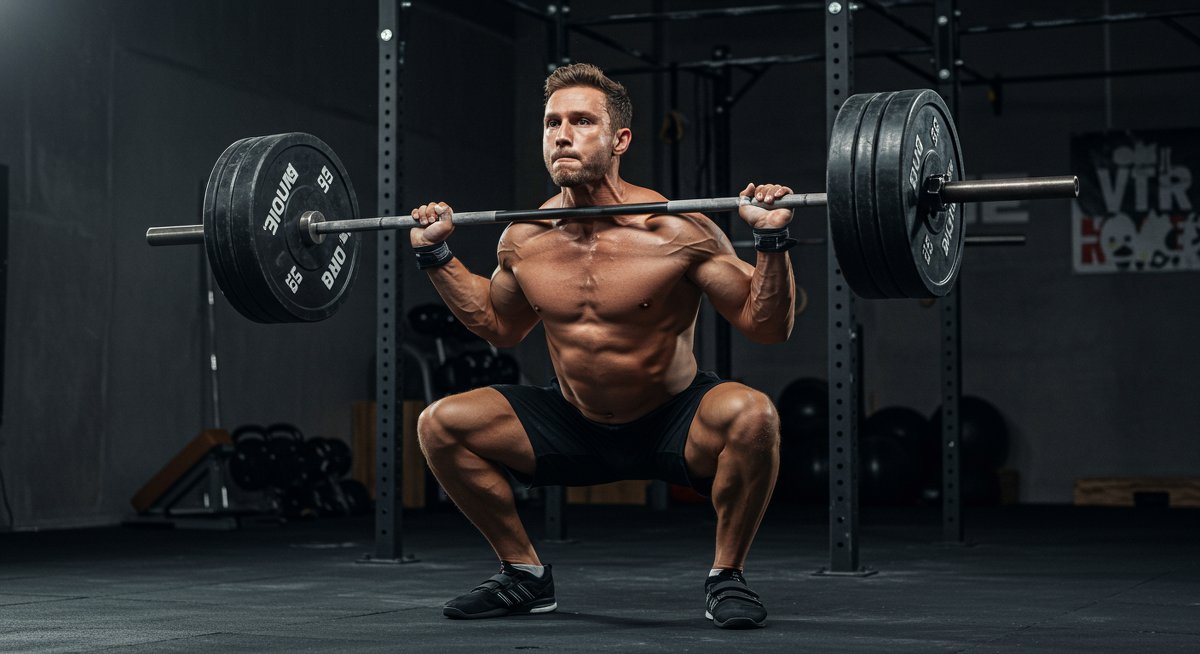The Reddit Post That Sparked This
I came across this Reddit post in r/bodybuilding that immediately grabbed my attention. A 23-year-old guy, standing tall at 6'0", shared his progress just under six weeks out from his classic physique debut. What made his post so compelling wasn't just his impressive physique, but the backstory: he used to weigh 315 pounds. Think about that for a second. That's not just a little weight loss; that's a complete transformation of his body and lifestyle.
He mentioned a few key details: he was weighing in at 161 pounds, sticking to a 1700-1900 calorie diet, getting 10-15k steps a day, and self-coaching (except for posing). He also noted that his strength and energy levels were solid, and his loose skin was becoming less noticeable. The post got a decent amount of upvotes and comments, mostly people congratulating him and asking for more details. But I think there's a lot more to unpack here than just a simple "good job." This is a story of dedication, discipline, and a smart approach to fitness.

Unpacking the Transformation: Diet, Steps, and Self-Coaching
Let's break down what this guy did, because it's more than just "eat less, move more." First off, the calorie range of 1700-1900 is pretty aggressive, especially considering he's training hard for a competition. This suggests he likely implemented a strategic approach to his nutrition, ensuring he consumed adequate protein to preserve muscle mass while creating a significant caloric deficit to burn fat. It's also important to note the individual's height and weight - someone carrying more muscle would have a higher protein intake.
The 10-15k steps are also crucial. This isn't just about burning extra calories; it's about maintaining overall health, improving insulin sensitivity, and keeping his metabolism humming. It also shows a commitment to consistency. He's not just hitting the gym; he's actively moving throughout the day. The self-coaching aspect is interesting, too. While he sought help with posing (which is smart, because posing is an art form), he managed his own diet and training. This suggests a high level of self-awareness and a willingness to learn and adapt.
What This Means For Your Own Weight Loss Journey
Okay, so what can we learn from this Reddit post if you're not planning on stepping on a bodybuilding stage? Quite a bit, actually. The first takeaway is the importance of setting realistic, yet challenging, goals. Losing over 150 pounds is a monumental achievement, and it didn't happen overnight. This guy likely set smaller, more manageable goals along the way, which helped him stay motivated and track his progress. It's important to keep in mind that weight loss and overall fitness is a marathon, not a sprint. This can be accomplished by setting small achievable goals in the short-term to stay motivated.
His approach also highlights the power of combining diet and exercise. The calorie restriction, coupled with consistent physical activity, created a powerful fat-burning environment in his body. You don't have to go as extreme as a bodybuilding diet, but you do need to be mindful of your calorie intake and find ways to incorporate more movement into your day. Moreover, his example emphasizes the value of self-education. By taking ownership of his training and nutrition (minus the posing), he developed a deep understanding of his body and how it responds to different stimuli. This knowledge is invaluable for long-term success.
The Untold Truth About Body Transformations
Let's be real: transformations like this aren't easy. The Reddit post doesn't mention the inevitable plateaus, the cravings, the days when motivation is non-existent. It also doesn't touch on the mental challenges of losing a significant amount of weight, such as dealing with body image issues or adjusting to a new identity. There are also practical considerations, like the cost of healthy food, gym memberships, and potentially, cosmetic surgery to address loose skin.
It's important to acknowledge these challenges upfront, because they're a normal part of the process. Expect setbacks, learn from your mistakes, and don't be afraid to ask for help. Losing a significant amount of weight often requires a lifestyle change. In turn, this means having to give up certain habits that are not conducive to a healthy lifestyle. Friends and family might not understand the changes and challenges associated with those changes. It can be a lonely journey without the proper support system.
Adapting the Bodybuilding Mindset to Everyday Life
So, how can you apply the lessons from this bodybuilder's journey to your own life, even if you're not aiming for a competition? The key is to focus on the principles, not the specifics. You don't need to eat 1700 calories a day or get 15,000 steps, but you do need to create a calorie deficit and find ways to move more.
Think about your current lifestyle and identify small, sustainable changes you can make. Can you swap sugary drinks for water? Can you walk during your lunch break? Can you cook more meals at home instead of eating out? These small changes can add up over time and lead to significant results. When starting a weight loss journey, it can be difficult to change every aspect of your life all at once. Pick one or two simple things to change and gradually layer on additional lifestyle changes to build a sustainable lifestyle. Moreover, be patient and kind to yourself. Weight loss is a journey, not a destination. There will be ups and downs, but as long as you stay consistent and focused on your goals, you will eventually reach them.

Creating Your Own Transformation Roadmap
Ready to put this into practice? Here's a step-by-step guide to creating your own transformation roadmap:
- Set a realistic goal: Don't try to lose 100 pounds in three months. Aim for a more sustainable rate of 1-2 pounds per week.
- Calculate your calorie needs: Use an online calculator to estimate your daily calorie needs based on your age, gender, height, weight, and activity level. Then, subtract 500-750 calories to create a deficit.
- Prioritize protein: Aim for at least 1 gram of protein per pound of body weight to preserve muscle mass.
- Find activities you enjoy: Exercise shouldn't be a chore. Experiment with different activities until you find something you genuinely enjoy, whether it's dancing, hiking, swimming, or weightlifting.
- Track your progress: Use a food journal, fitness tracker, or app to monitor your calorie intake, exercise, and weight loss. This will help you stay accountable and make adjustments as needed.
- Be patient and persistent: Don't get discouraged by setbacks. Just keep showing up and putting in the effort, and you will eventually see results.
My Final Thoughts: The Power of Belief and Consistency
Ultimately, what struck me most about this Reddit post was the power of belief and consistency. This guy didn't just lose weight; he transformed his entire life. He set a goal, created a plan, and stuck to it, even when things got tough. That's a lesson we can all apply to our own lives, whether it's fitness-related or not.
Maybe I'm oversimplifying things, but I think a lot of success comes down to mindset. If you believe you can achieve something, you're much more likely to put in the work and overcome the obstacles. And if you stay consistent with your efforts, even when you don't see immediate results, you're bound to make progress over time. So, take inspiration from this bodybuilder's journey, but remember that your own transformation is unique to you. Focus on your own goals, your own challenges, and your own path to success.